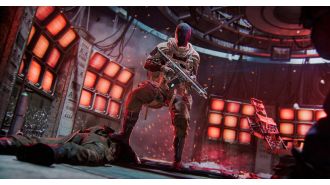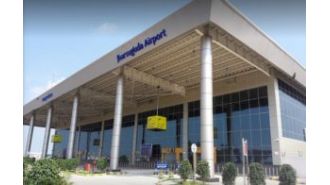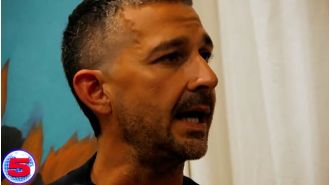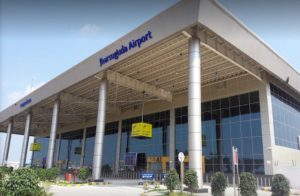RTD increases number of trained police dogs to enhance safety and protection
RTD has increased transit officers fourfold and recently added three dogs to improve safety and attract more riders.

The Regional Transportation District is taking steps to enhance safety and security for passengers by increasing the number of counterterrorism dogs being deployed for station sweeps and inspections on buses and trains. This initiative is part of a larger effort to address recent incidents of violence on RTD vehicles and encourage riders to return to public transit. Three new K-9 team members, all Belgian Malinois dogs, have been added to the RTD transit police force.
One of these dogs, Milo, was born and raised in Hungary. Officer Corey Averill describes Milo as highly focused and motivated, saying that "Milo lives for his job." Averill also notes that if Milo were a house pet, he would become restless and bored, as he truly enjoys working and serving the community. The expansion of the K-9 unit is a significant step in RTD's security campaign, as the agency had previously only had one dog on the team.
This increase in capacity is aimed at improving security on public transit throughout the metro Denver area. In recent years, the region has seen a rise in violent incidents on RTD buses and trains, leading to a decrease in annual ridership from 106 million in 2019 to around 65 million. However, the RTD faces a unique challenge in ensuring the safety and security of their expansive service area, which spans over 2,300 square miles across eight counties.
The agency's directors understand that it is impossible to cover every single route, but they are committed to finding ways to enhance security for passengers. The security push began with the addition of more transit police officers, with the number increasing from 19 in 2022 to 88 this month. And by the end of 2025, that number is expected to reach 150, including a new group of detectives dedicated to investigating transit-related crimes.
In an interview this week, the agency's transit police acting co-chiefs, Glyn Horn and Steven Martingano, emphasized the importance of having a visible police presence to make passengers feel safer. Horn stated, "The more people see a police uniform, the safer they feel." He added that the increased number of police officers, combined with the K-9 sweeps, will not only improve safety but also the perception of safety, ultimately leading to an increase in ridership. Starting this month, the RTD's K-9 team will be conducting regular sweeps at all times of the day in various stations and among passengers on buses and trains.
Milo, along with his fellow Belgian Malinois K-9s Koa and Rayne, and a seasoned Labrador, will be using their rigorous training to detect explosives, similar to the counterterrorism dogs found at airports. These dogs will also assist RTD police officers when they receive tips about unattended bags or packages, helping to assess risks and determine if further action is necessary. But it's not just about explosives.
Officer Averill explains that the K-9s will also play a crucial role in deterring illegal drug use and other unwanted activities on RTD vehicles and stations. In fact, there have already been instances where the presence of a dog has prevented potential problems. For example, a suspicious passenger who saw a dog suddenly left the train, leaving behind their companion, and a man who was causing a disturbance in Union Station quickly left when he saw an officer with a dog approaching.
RTD police supervisors acknowledge that their territory is vast, and they cannot have a presence on every single route. However, they will continue to rely on surveillance cameras and tips from riders to concentrate their patrols in areas with higher incidents of crime. Chris Nicholson, an incoming RTD director, understands that people may feel safer in their own cars and may be hesitant to use public transit due to factors such as no heat or air conditioning.
He adds, "Then you tack on someone smoking fentanyl or harassing you or trying to sell you drugs, or having a severe mental health episode, and suddenly the gap between the comfort you experience in your car and what you’re getting from transit becomes big enough that people say ‘no thank you.’" The three new dogs will be fully trained and ready to serve by the end of the year. They are "people neutral," meaning they are friendly and enjoy meeting passengers when not on duty. However, when directed to conduct sweeps, they become highly determined and will use their instincts to protect people from potential attacks by quickly detecting and alerting their handlers.
In addition to the new dogs, the RTD also received a grant from the Federal Emergency Management Administration to fund their acquisition. As Officer Averill puts it, "It is definitely better to have them and not need them than to need them and not have them."










